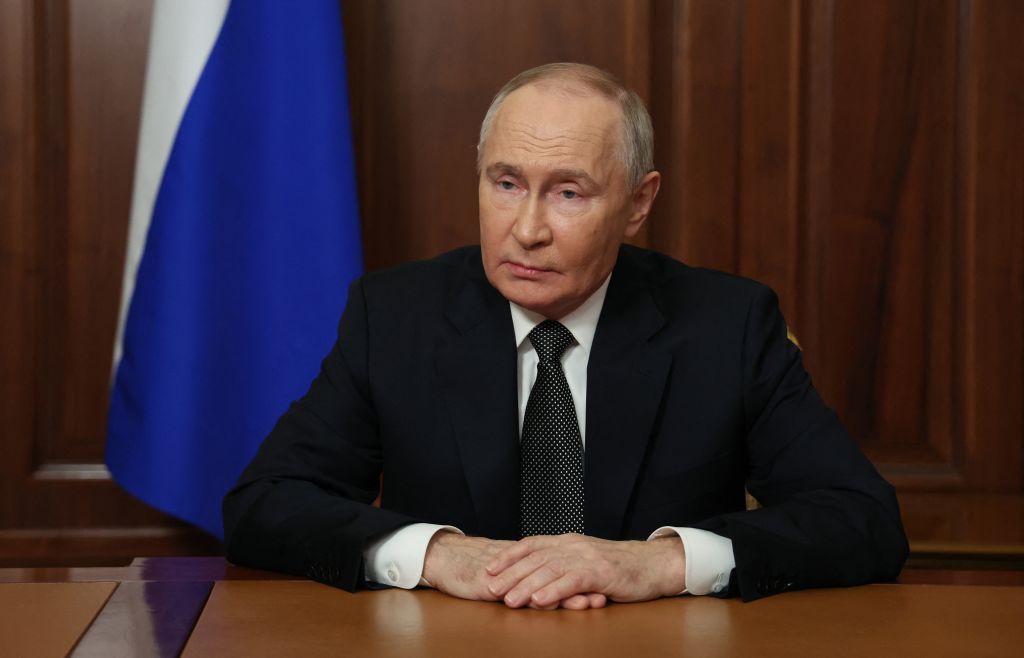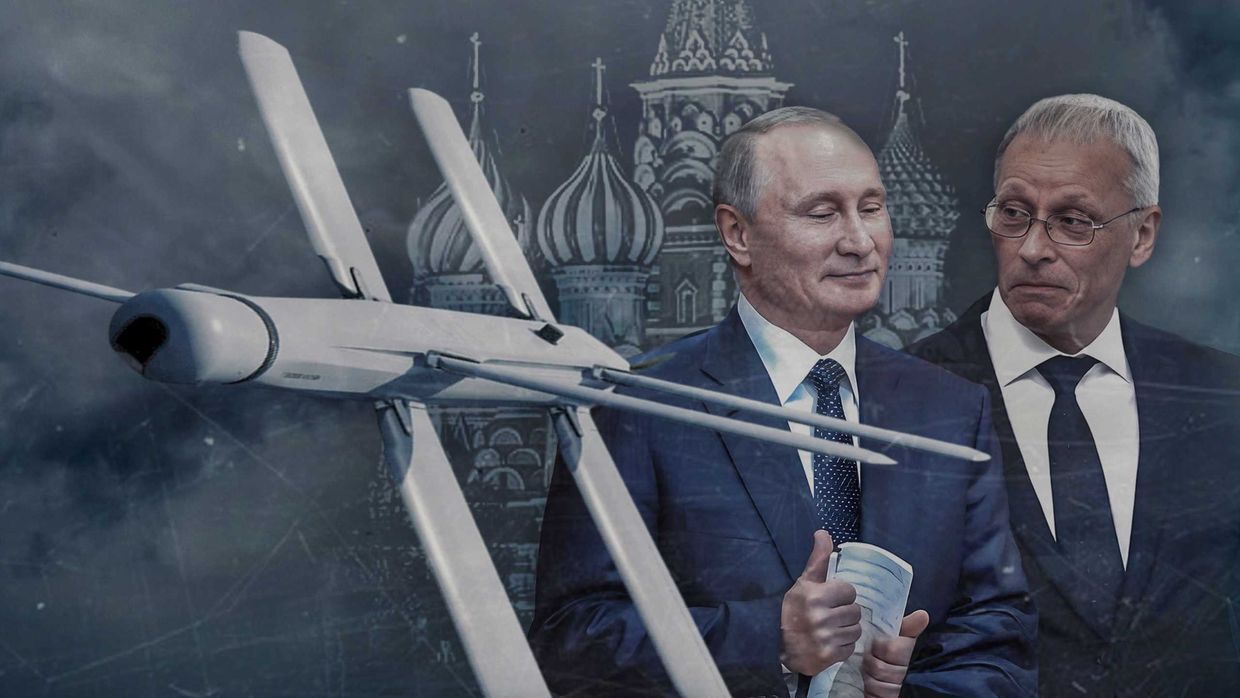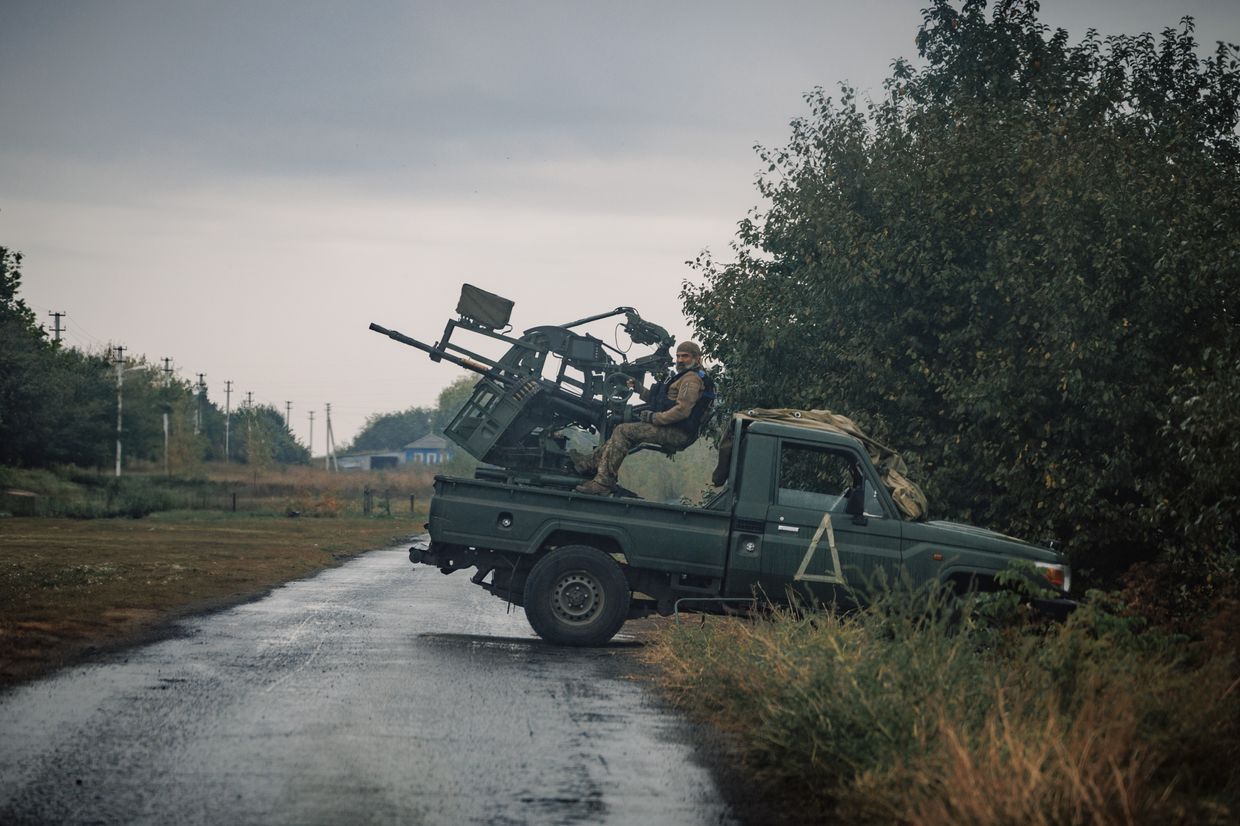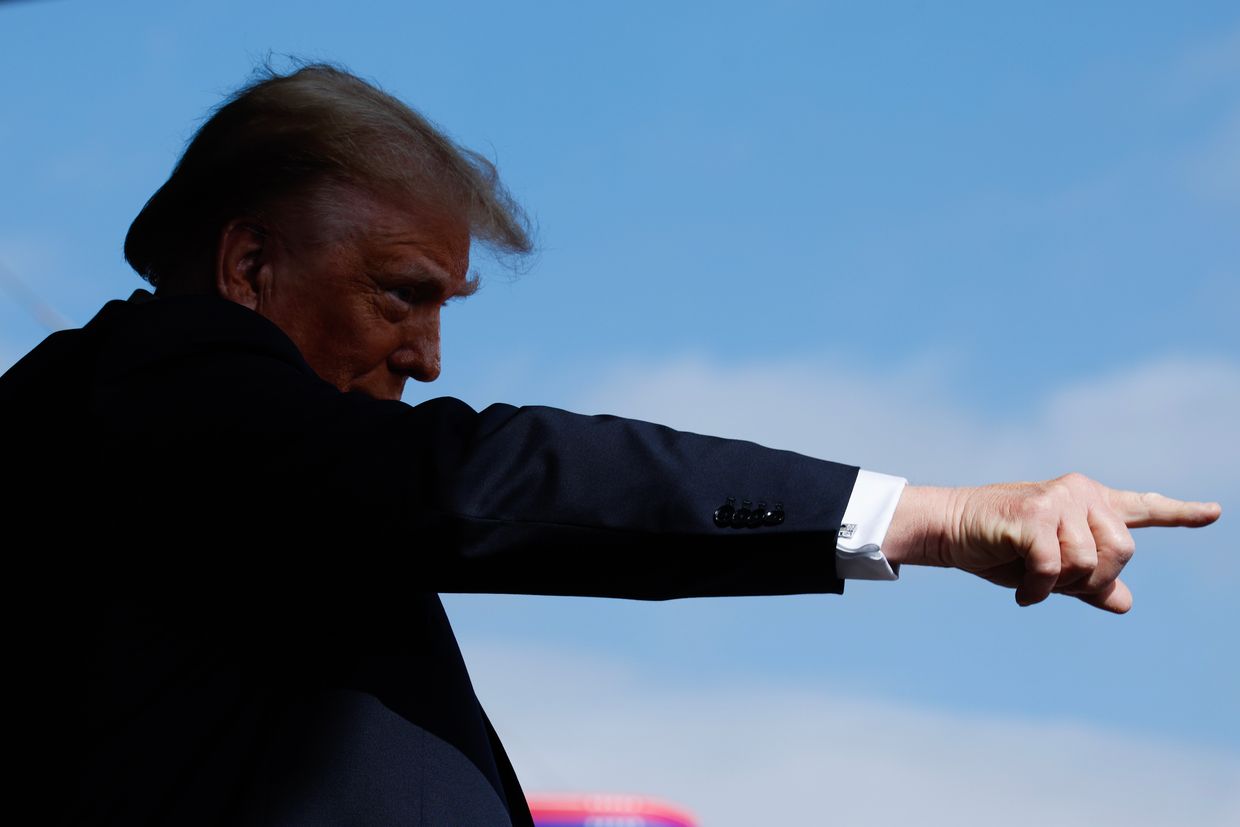Ukraine war latest: Russia likely used ballistic missile from 'Kedr' complex to strike Dnipro, intelligence says

Key developments on Nov. 22:
- Russia likely used ballistic missile from 'Kedr' complex to strike Dnipro, intelligence says
- Russia plans to launch mass production of Oreshnik missile, Putin says
- North Korea received anti-aircraft missiles, oil from Russia in exchange for troops, reports say
- Russia has deployed nearly 60,000 troops to Kursk Oblast, media reports
- War in Ukraine at 'decisive stage,' risk of 'global conflict,' Poland's Tusk says
The ballistic missile launched by Russia on Nov. 21 against the city of Dnipro was likely part of the "Kedr" missile complex tested in recent years, Ukraine's military intelligence (HUR) said.
Several companies part of the Russian military-industrial complex were involved in developing "Kedr," which was tested at the Kapustin Yar test site in 2023 and 2024, HUR said on Nov. 22.
HUR's statement comes after Russian President Vladimir Putin said in his televised address to the nation on Nov. 21 that the attack was a test of Russia's "newest missile," an intermediate-range ballistic missile (IRBM) called "Oreshnik."
The missile was launched at Dnipro from Russia's Astrakhan Oblast and covered nearly 1,200 kilometers (745 miles) in 15 minutes, according to HUR.
The missile was equipped with six warheads, each carrying six submunitions. The speed on the final section of the missile's trajectory was over Mach (М) 11. At a temperature of 15°C (59°F), the speed of 1 M in the atmosphere is 1,225 kilometers per hour (716 miles per hour).
"It is an experimental system. Let's just say it's a medium-range ballistic missile. It is a carrier of nuclear weapons. The fact that they used it in a non-nuclear version is, as they (Russians) say, a warning from them that they have not gone completely crazy," military intelligence chief Kyrylo Budanov said at an event on Nov. 22.
Budanov called Russia's latest development "a prototype," adding that it is not currently in mass production.
Russian media circulated information about the development of a missile system called "Kedr" in 2021, labeling it "a new-generation strategic complex."
Initial reports by Ukrainian authorities suggested that Russia had test-fired an intercontinental ballistic missile to target Dnipro. Later that evening, Putin said the new "Oreshnik" IRBM had allegedly been used.
Little is known about the "Oreshnik" missile referred to by Putin, but military expert Yan Matveev told Russian independent media outlet IStories that it could be a modified version of the "Rubezh" IRBM.
The RS-26 "Rubezh" is reported to have a range of up to 6,000 kilometers and can carry four warheads, each with an estimated payload of 0.3 megatons.
Russia plans to launch mass production of Oreshnik missile, Putin says
Russia aims to launch the "Oreshnik" intermediate-range ballistic missile (IRBM) into mass production, Russian President Vladimir Putin said on Nov. 22 during a meeting with the representatives of the Russian Defense Ministry and the national military-industrial complex.
Putin denied that the Oreshnik is a modernization of old Soviet systems, as the missile is allegedly based on "the latest Russian developments." The Russian president added that there are no analogs of such weapons in the world, nor are there any means to intercept them.
"Given its striking power, especially in mass use, and combined with other high-precision long-range systems Russia also has, its use against enemy targets will be comparable to strategic weapons. Although the system is not a strategic weapon," Putin claimed.
Russian forces still have a stockpile of these missile systems ready for use, according to Putin. The Russian president also said that Russia will continue to test the Oreshnik missile, including in combat conditions.
Putin added that Russia is working on a series of medium- and short-range missiles. Several Russian systems are allegedly being tested and planned for mass production.
North Korea received anti-aircraft missiles, oil from Russia in exchange for troops, reports say
Russia gave North Korea oil and anti-aircraft missiles in return for military support in Ukraine, according to a South Korean official, and satellite imagery analysis.
North Korea has dispatched 10,000 troops to Russia, with most of them deployed in Kursk Oblast and taking part in combat, a Pentagon spokesperson said during a press briefing on Nov. 12.
South Korea's national security advisor Shin Won-sik on Nov. 22 said Moscow had provided Pyongyang with economic and military technology in exchange for the troops.
"It is understood that North Korea has been provided with related equipment and anti-aircraft missiles to strengthen Pyongyang's weak air defense system," Shin said in an interview with South Korea's SBS News.
Elsewhere, the BBC on Nov. 22 reported that Russia is estimated to have supplied North Korea with more than a million barrels of oil since March this year, a breach of international sanctions.
Pyongyang is subject to a strict cap on oil transfers, imposed by the U.N. Security Council in 2017 after a series of nuclear weapons tests.
The claim was based on an analysis of satellite imagery by the Open Source Center, a non-profit research group based in the U.K.
U.K. Foreign Secretary David Lammy told the BBC that the oil is payment for weapons and troops sent to Moscow to fuel the war in Ukraine.
North Korean leader Kim and Russian President Vladimir Putin signed a strategic partnership agreement in June. Under the treaty, the two countries pledge to help each other if either is attacked.
North Korean Foreign Minister Choe Son Hui visited Moscow and met with Russian Foreign Minister Sergei Lavrov on Nov. 4.
"Our country will stand firmly by our Russian comrades until the day of victory," Choe said, calling Moscow's offensive against Ukraine a "sacred struggle."
Valerii Zaluzhnyi, Ukraine's former commander-in-chief and current ambassador to the U.K., claimed that the direct involvement of Russia's allies, such as North Korea, in the war against Ukraine was evidence of a global conflict.

Russia has deployed nearly 60,000 troops to Kursk Oblast, media reports
Nearly 60,000 Russian army personnel are currently stationed in Russia's Kursk Oblast, Suspilne reported on Nov. 22, citing its undisclosed source in the General Staff of Ukraine's Armed Forces.
Earlier reports from Ukrainian authorities said Russia had amassed 50,000 troops in Kursk Oblast, including North Korean soldiers, to attempt to push the Ukrainian military out of its territory.
Ukrainian forces will remain in Kursk Oblast as long as "militarily possible," the source said.
According to the source, the General Staff believes that the Russian troops are planning to reach the border with Sumy Oblast to create a "buffer zone" there, as Ukraine looked to do with its incursion into Kursk Oblast.
Kyiv launched the surprise offensive into Kursk Oblast on Aug. 6. Russian forces have managed to reclaim around half of the territory initially captured by Ukrainian troops.
Russia has also deployed thousands of North Korean troops in the embattled region, with some reportedly already clashing with Ukraine in small-scale battles. Around 11,000 North Korean soldiers were stationed in Kursk Oblast as of Nov. 4.
According to Commander-in-Chief Oleksandr Syrskyi, Russian forces have suffered 7,905 soldiers killed, 12,220 injured, and 717 captured during the three months of the Kursk offensive.
War in Ukraine at 'decisive stage,' risk of 'global conflict,' Poland's Tusk says
The war in Ukraine has reached a "decisive phase," and the latest events demonstrate the real threat of a "global conflict," Polish Prime Minister Donald Tusk said on Nov. 22.
Tusk's comments came in the wake of Russia's attack on Dnipro a day earlier, in which Moscow claims a new missile, an intermediate-range ballistic missile (IRBM) called "Oreshnik," was tested.
Speaking at the Congress of the Polish Teachers' Union, Tusk referred to what he called "the events of the last dozen hours" as demonstrating there is a "serious and real threat of global conflict."
"It would be hard for me not to say a few fundamental words today about the situation, because it is historic," he said in comments reported by Polish outlet Radio Zet.
"The war in the east is entering its decisive phase. We all know it. We feel that the unknown is approaching. None of us knows the end of this conflict, but we know that it is currently taking on very dramatic dimensions."
Russian President Vladimir Putin on Nov. 21 said his country had launched its "newest missile" in the attack on Dnipro, eastern Ukraine that morning.
He said the test was in response to Ukraine targeting facilities in Russia's Kursk and Bryansk oblasts with long-range, Western-supplied ATACMS and Storm Shadow missiles on Nov. 19 and 20.
The Oreshnik missile is designed to carry nuclear weapons. However, Putin said it was not armed with a nuclear warhead in this instance.
Poland, one of Ukraine's staunchest supporters, is being pressured by Russia over the new U.S. missile defense base that opened in northern Poland on Nov. 13, as reported by Reuters.
Polish Foreign Minister Radoslaw Sikorski also announced on Nov. 19 that key EU countries are ready to increase military and financial aid to Ukraine if the U.S. reduces its support.















